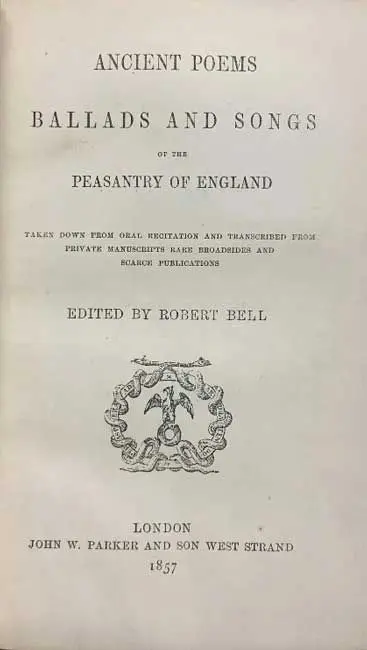
The Farmer's Boy
This very popular and widely known folksong, ‘The Farmers Boy’ has been imprinted in my memory banks since I first sang it at Junior School.
The song was first published in 1832, when it was included in a collection of Broadside Ballads, with the title ‘The Lucky Farmers Boy’. When it appeared in the first edition of 'Ancient Poems, Ballads and Songs of the Peasantry of England’ by James Henry Dixon, published by the Percy Society in 1846, the Lucky’ of the title had been dropped. A revised enlarged second edition of the book, edited by Robert Bell was published in 1857. Frank Kidson in Traditional Tunes 1891, states:
“Even now the popularity of the Farmers Boy is great amongst country singers.”
Albert Richardson, 'The Singing Sexton' and handbell ringer of Burwash, East Sussex recorded The Farmers Boy on the Zonophone record label in 1932.
